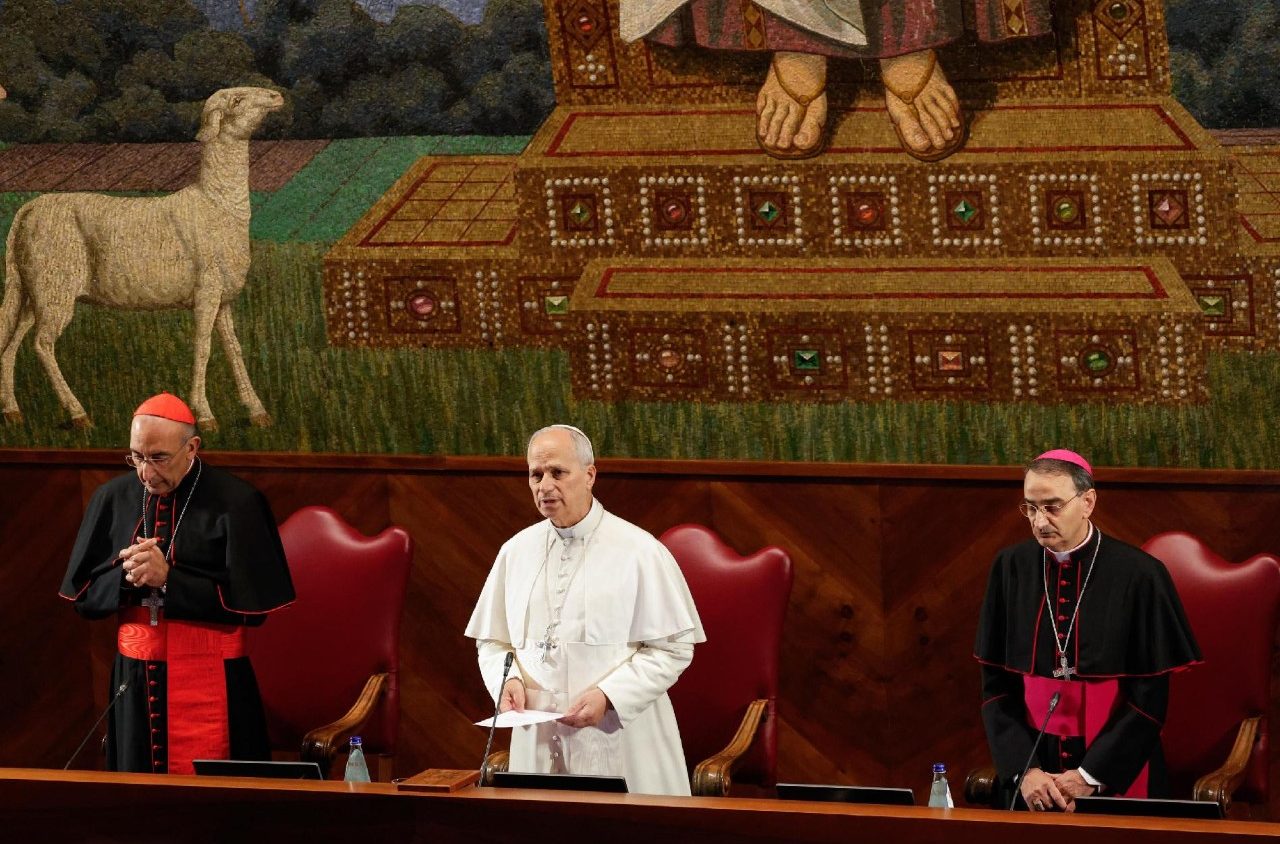Pope Leo visits the Pontifical Lateran University for the inauguration of the 2025–2026 academic year, saying that the institution “holds a special place in the Pope’s heart”.
By Myriam Sandouno
Rome’s Pontifical Lateran University, known since a historic 1980 address by Pope John Paul II as “the Pope’s university,” today opened its 253rd academic year.
On Friday morning, Grand Chancellor Cardinal Baldassare Reina, Rector Magnificus Archbishop Alfonso V. Amarante, members of the coordinating council, professors, students, civil and religious authorities, and staff welcomed Pope Leo XIV.
In the university’s Aula Magna, the Pope participated in its Dies Academicus, a moment of reflection and encounter which marked the beginning of the academic year.
A mission rooted in the Papal Magisterium
Pope Leo told those gathered that “the Lateran University occupies a special place in the heart of the Pope, who encourages you to dream big, to imagine possible spaces for the Christianity of tomorrow, to work joyfully so that all may discover Christ and find in Him the fullness to which they aspire.”
The Pope underlined that, “unlike other renowned academic institutions—even here in Rome—this university does not have a founding charism to preserve or develop. Its distinctive orientation is the Pope’s magisterium.”
By nature and mission, he explained, the Lateran is “a privileged center where the teaching of the universal Church is developed, received, elaborated, and contextualized. In this sense, it is an institution to which even the Roman Curia may refer in its daily work.”
This mission, Pope Leo emphasized, is carried out across 28 affiliated institutes across Europe, Asia, and the Americas—“a vast and diverse reality, expressing the richness of cultures and experiences and, at the same time, the search for unity and fidelity to Petrine teaching”.
Faith, the search for truth, and dialogue
Pope Leo then stressed the urgent need to reflect on faith today, “in order to articulate it within today’s cultural scenario and today’s challenges, and counter the risk of a growing cultural void.”
He urged the Faculty of Theology in particular to highlight the beauty and credibility of faith in contemporary contexts, and present it as “deeply human”, capable of transforming individuals and societies.
Philosophy, law, peace sciences and ecology
“The study of philosophy must be directed toward the search for truth through the resources of human reason—open to dialogue with cultures and especially with Christian Revelation,” the Pope said.
He then called on the faculties of canon and civil law, which have defined the university for centuries, to investigate the relationship between civil legal systems and that of the Catholic Church.
Pope Leo also gave special mention to the degree programs in peace studies, ecology, and the environment, which he said will take on a more structured institutional form in the coming years.
“Peace is certainly a gift from God, but it also demands women and men capable of building it daily, and of supporting national and international processes leading to an integral ecology,” the Pope said.
He brought his address to a close by encouraging the university “to continue probing the mystery of the Christian faith with passion and always to practice dialogue with the world, society, and today’s questions and challenges.”
‘Uncharted territory”
Comprising 130 teachers, 34 officials and administrative staff, and over a thousand students, the Lateran University, as Cardinal Reina emphasised in his introductory greeting, is deeply committed to interdisciplinarity and transdisciplinarity.
Although it has been affected by demographic decline and the vocations crisis, Reina said, as well as the resulting economic crisis, it is seeking to explore new avenues in research and teaching.
“We are trying,” Cardinal Reina said, “to explore uncharted territory both in research and teaching and in the design of new courses of study that respond to the Petrine magisterium.”

